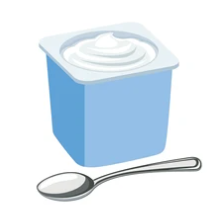Is It Safe to Eat Eggs Past Their Best Before Date?

Is it Safe to Eat Eggs Past Their Best Before Date?
Eggs are a kitchen staple, but what happens if you find yourself with a carton that’s past its best before date? Are they still safe to eat, or should you toss them out? The good news is that eggs can often still be safe to consume well past their best before date if stored correctly. Here’s a guide to help you check if your eggs are still good to eat, and how to make the most of them while reducing food waste.
What Does “Best Before” Mean?
The best before date on eggs is not an expiration date—it’s a guideline for peak freshness and quality. Eggs can often last well beyond this date as long as they are stored properly. The best before date is more about taste and texture, but it doesn’t necessarily mean the eggs are unsafe to eat once that date has passed.
How to Check If Eggs Are Still Safe to Eat
Here are a few simple tests to determine whether your eggs are still good:
-
The Float Test: Fill a bowl with water and gently place the eggs in it.
- Fresh eggs will sink and lie flat on the bottom.
- Slightly older eggs will stand upright or float slightly.
- Bad eggs will float to the top. This happens because the egg’s contents shrink as it ages, creating an air pocket that causes it to float.
-
The Smell Test: If an egg floats, or if you’re unsure, crack it open into a bowl. A bad egg will have a strong, unpleasant sulfur smell. Fresh eggs have no smell at all.
-
The Visual Inspection: Check for any cracks in the eggshell, as bacteria can enter through cracks. Discard eggs with visible damage. Also, look for any unusual color changes or signs of mold inside the shell.
How Long Do Eggs Last After Their Best Before Date?
When stored properly in the fridge, eggs can last 3–5 weeks beyond their best before date. This is especially true for eggs stored in their original carton, which helps protect them from absorbing odors from other foods. Eggs should always be kept at a temperature of 4°C (40°F) or lower to maintain their freshness.
Tips for Storing Eggs to Extend Their Freshness
- Keep Them in Their Original Carton: This helps prevent eggs from absorbing strong odors from other foods and keeps them at a consistent temperature.
- Store in the Coldest Part of the Fridge: The back of the fridge is usually the coldest and best place to store eggs. Avoid keeping them in the door, where the temperature fluctuates due to frequent opening.
- Don’t Wash Eggs Before Storing: Eggs have a natural protective coating that helps keep bacteria out. Washing them can remove this coating, reducing their shelf life.
When to Toss Eggs
You should discard eggs if:
- They fail the float test (they float to the top of the water).
- They have a strong, unpleasant smell when cracked open.
- The eggshell is cracked or damaged, making the egg susceptible to contamination.
- The egg appears discolored or has a slimy texture when cracked open.
Creative Ways to Use Older Eggs
Even if your eggs are past their best before date but still pass the tests for freshness, you can use them in a variety of dishes:
- Baked Goods: Eggs that are a little older can still be used in cakes, muffins, and other baked goods where the freshness of the egg isn't as important.
- Scrambled or Fried Eggs: Older eggs can still be used in scrambled eggs or fried eggs, as long as they smell and look fine when cracked open.
- Egg Salad or Deviled Eggs: These are great ways to use up eggs that are still safe to eat but might not be as fresh as they once were.
Conclusion
Eggs can often be enjoyed long after their best before date as long as you check for signs of freshness, like performing the float test or smelling them once cracked open. Proper storage is key to extending their shelf life and reducing food waste. With these simple tips, you can confidently use up eggs that are past their best before date without worrying about safety, all while minimizing waste in your kitchen.






Comments